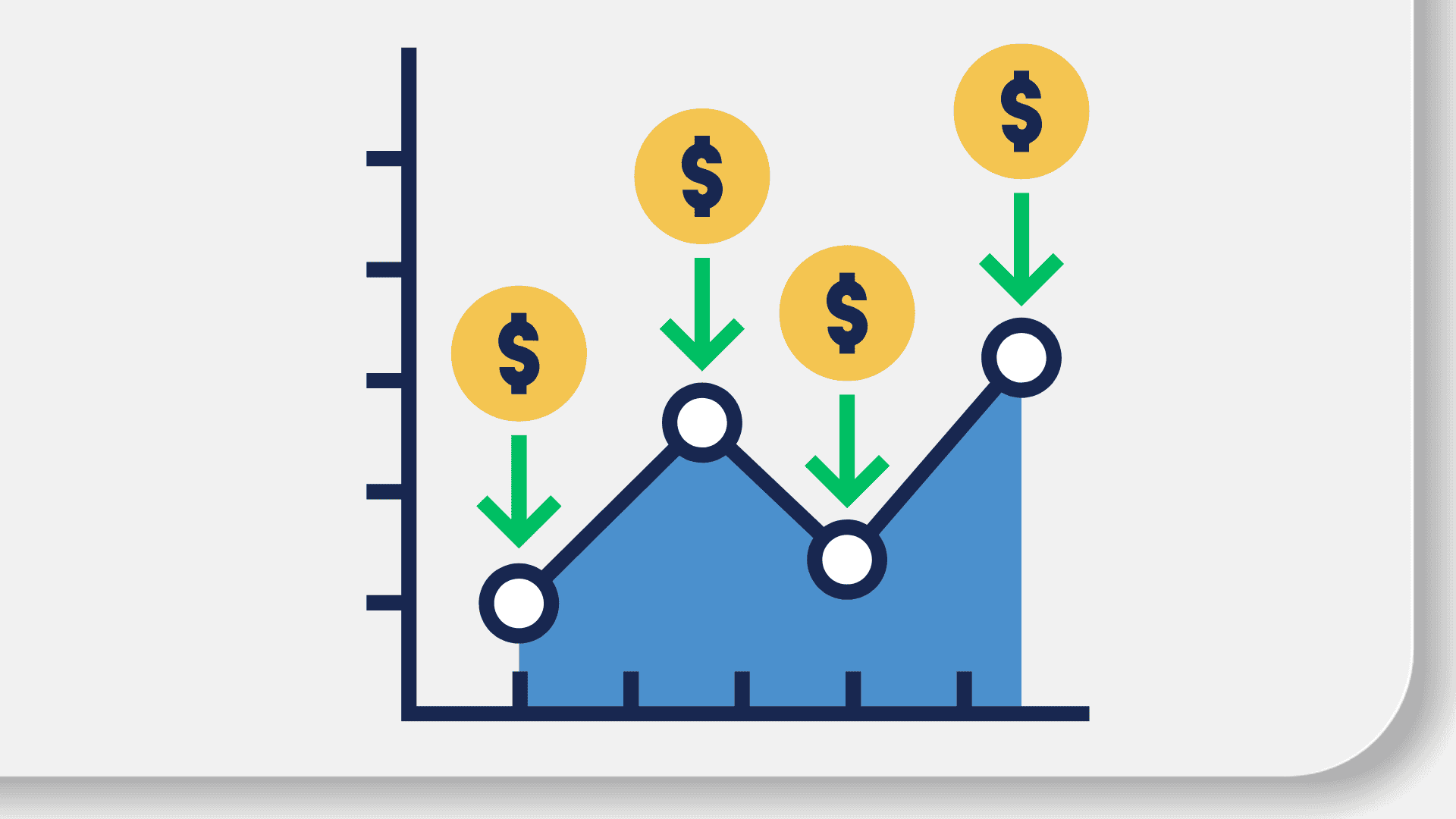
Dollar-Cost Averaging (DCA): A Beginner-Friendly Investment Strategy
Stock markets are notorious for their volatility, making it challenging to decide when to invest. Dollar-Cost Averaging (DCA) offers a practical and straightforward way to navigate market fluctuations, especially for newcomers. By spreading your investment over time, DCA reduces the impact of price swings and encourages a disciplined, emotion-free approach to investing.
What is Dollar-Cost Averaging?
Dollar-Cost Averaging is an investment strategy where you invest a fixed amount of money at regular intervals, regardless of the asset’s price. Instead of trying to time the market, DCA spreads out purchases, averaging your entry price over time.
For example, if you plan to invest $1,000 in Tesla (TSLA), instead of investing it all at once, you could invest $100 weekly for 10 weeks.
Benefits of DCA in Trading
- Minimizes Market Timing Risks
DCA removes the pressure of trying to predict market highs and lows. - Reduces Emotional Investing
Fear and greed often drive poor decisions. DCA enforces consistency, preventing panic buys or sells. - Smoothens Price Volatility
By purchasing at different price points, DCA averages out your investment cost, mitigating the impact of extreme price fluctuations. - Encourages Long-Term Focus
DCA promotes a patient approach, aligning with the philosophy of long-term wealth building.
Example Scenarios of DCA in Action
Scenario 1: Building a Stock Portfolio
Alice wants to invest $12,000 in company X but is wary of its volatile prices. Instead of investing the entire amount at once, she divides it into $1,000 increments, investing every month for a year.
- In January, X share is priced at $500 per share, so Alice buys 2 X shares.
- In February, X drops to $250, allowing her to buy 4 X shares.
- By December, X share price rises to $1,000, and her total holdings average out to a portfolio value of $21,500.
Through DCA, Alice accumulates X shares steadily, benefiting from price dips without worrying about timing the market.
Scenario 2: Avoiding Emotional Decisions
John hears about a market crash and panics, unsure whether to invest or wait. Using DCA, he continues to invest $500 bi-weekly into X regardless of market conditions. Over time, his portfolio grows without being influenced by market hype or fear.
Scenario 3: Automating the Process with StockHero
Lisa uses StockHero’s DCA bot to automate her strategy. She configures the bot to invest $250 weekly in X, based on a specific entry indicator or price range. The bot ensures her strategy operates seamlessly, purchasing more X shares during dips and less during peaks, saving her time and effort.
How to Implement a DCA Strategy
- Set a Budget
Determine the total amount you want to invest and divide it into smaller, manageable installments. - Choose an Interval or Entry Condition
Decide how frequently you’ll invest—daily, weekly, or monthly. Or, if you are using StockHero DCA bot, you can setup a more intelligent entry based on actual dips. - Pick Your Asset
Focus on a stock you believe in, to ensure your strategy aligns with your goals. - Automate the Process
Many platforms offer automation tools to execute DCA strategies, saving time and ensuring consistency. Explore a tool like StockHero, one of the top automated stock trading bots.
Common Mistakes to Avoid with DCA
- Stopping During Market Dips
The whole point of DCA is to continue investing during downturns to take advantage of lower prices. - Choosing Unreliable Assets
Avoid applying DCA to highly speculative or lesser-known stocks without proper research. - Lack of a Clear Exit Plan
Decide in advance when or how you’ll stop DCA—whether it’s reaching a target amount or hitting specific market conditions.
DCA vs. Lump-Sum Investing
- DCA Advantages: Ideal for volatile markets, reduces emotional decision-making, and lowers the risk of buying at peak prices.
- Lump-Sum Advantages: Potential for higher returns in a rising market but involves greater risk due to market timing.
Conclusion
Dollar-Cost Averaging is a beginner-friendly and effective strategy for navigating the unpredictable world of stock trading. It fosters discipline, reduces the risks of market timing, and helps build a robust investment portfolio over time. Whether you’re new to stock trading or a seasoned trader, incorporating DCA into your strategy can enhance your long-term success.
Why StockHero is Perfect for Your DCA Strategy
Looking to take the guesswork out of DCA? StockHero offers automated trading features, including customisable DCA bots that execute your investment strategy seamlessly. With its user-friendly interface, and low fees, StockHero empowers you to invest smarter and stay consistent in the stock market.
Try StockHero today and experience the difference and the future of intelligent stock trading!
FAQ
Q: Is DCA suitable for all stocks?
A: While DCA works best for most stocks, it’s less advisable for illiquid stocks or stocks without good fundamentals.
Q: Can I use DCA in a bear market?
A: Absolutely. DCA is particularly advantageous in bear markets, as you accumulate more shares at lower prices.